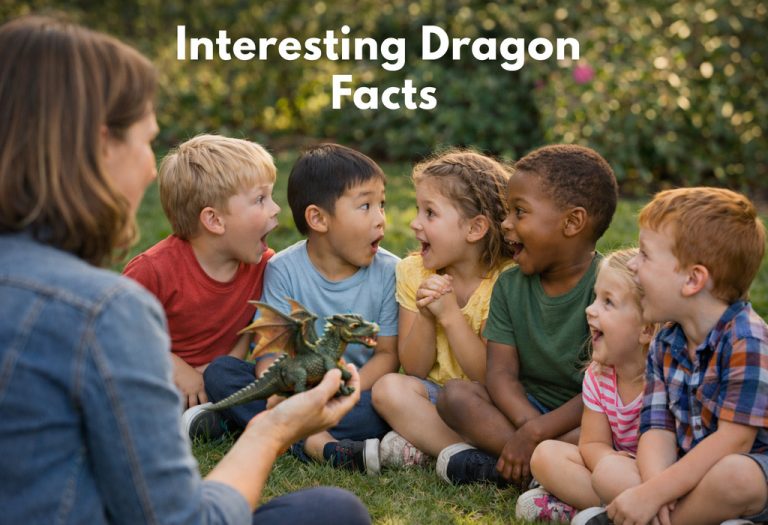Manipulative Child Behavior: Signs, Symptoms, & Solutions
Kids and tantrums go hand-in-hand. They learn to throw tantrums for every little thing, and they learn this before even learning the word ‘tantrum.’ As babies, they cry when they are hungry, sleepy, or need their parents’ attention. So every time they cry for food, nappy change, or just for some lap time, and their parents come running to them, it affirms sub-consciously in their minds the notion that crying gets them what they want. All these skilful tactics of the kids to make their parents give in to their whims and fancies are manipulation. Sometimes, children may use such manipulative tactics to gain the attention or praise of their parents, siblings, and even friends.
What Is a Manipulative Child?
According to the Stanford Encyclopedia of Philosophy, manipulation is an act of shaping behaviour or feelings to generate benefit out of it, which is neither coercion nor rational persuasion (1). Someone who manipulates a person does it for self-benefit. A manipulative child is a child who exploits situations to get what they want from their parents, caregivers, or friends. They could also manipulate to avoid punishments or consequences.
They use that subconscious knowledge to convince their parents to get them toys, chocolates, extra playing time, pizza, or anything else as they grow up. They convince their parents they “need” those things despite already having so many of them through cajoling, crying, or flattery. At times, when these tactics fail to get them what they want, or these tactics are not giving them favourable results, they may start using lies, speaking ill to the parent, making the parents feel guilty for not being caring and loving, or doing a favour/chore to make the parent feel obligated to comply with their demands.
At What Age Kids Start Manipulating?
Manipulative behaviour in children can start at any age. You can see preschool children using emotional manipulation as a way to get what they desire from adults. Manipulative behaviour is clearly seen in adolescence and adulthood.
Reasons Your Child Manipulates You
Children may manipulate their parents for numerous reasons ranging from emotional needs to material gains. While children can manipulate you, you should not encourage such behaviour. Parents often wonder at what age a child can manipulate them. Well, your child can start to manipulate even at a young age. As your kid grows, this manipulative behaviour can harm their psyche and personality. Therefore, it’s critical to discipline a manipulative child from the start. Some common reasons behind your child manipulating you can be:
- To get toys or gifts or other things they want
- When you don’t permit them to do something, such as stay out or play at their friend’s place or eat chocolates before meals, they may use manipulative tactics to settle a score with you or provoke you to make you angry.
- When they know you value their happiness or want to see them happy, they may emotionally manipulate you to make you do what they want.
- When they feel neglected, they use manipulation to gain your attention.
- To fit in with their friends or peers or social circle, they manipulate you to create a sense of anxiety, and you buy them things.
- To know they have power over you.
- To gain your love and care, they manipulate you to make you feel guilty of neglecting them or being uncaring.
- To cover their mistake, they use manipulative lies.
- At times, your kids might use manipulation to express their feelings.
- Sometimes, to express their frustration, overwhelm, or fear, they use manipulation.
- On the birth of their sibling, your kid may throw tantrums or manipulate you to express their distress or insecurity.
Signs and Symptoms of a Manipulative Child
The signs of manipulation by your child may not always be straightforward and often subtle, making you feel you are mistaken or the child is just behaving like a child. It won’t always be easy for you to pinpoint their tactics or stop a manipulative child. However, a few common signs and symptoms can help you know whether your child is manipulative. They are:
1. Emotional Outbursts
Your child might not be able to take “no” as an answer when you deny them anything. They may get irritated or exhausted when you don’t grant them their wish. When this happens, the child may get out of control and find it challenging to control their emotions. This can result in aggression, outbursts, crying, or rudeness. Such intense emotional behaviour can confuse you as a parent, and out of concern for your child, you may be obliged to grant their wish or fulfil their request.
2. Temper Tantrums
Another usual sign of manipulation used by your child is throwing temper tantrums. Intense, angry outbursts by your child for a short duration or till they have got what they wanted are the primary characteristics of temper tantrums. Sometimes, they may refuse to eat or refuse to talk to you to blackmail you into fulfilling their wishes emotionally. Your child may resort to blatantly ignoring you or shout ill words at you, such as they hate you, you are the worst parent, they don’t want to live with you, etc. When outside, they may embarrass you in public by lying down on the floor or crying out loud to get a new toy or chocolate that you refused. Though temper tantrums are a common occurrence in young kids, you should step in to stop them when your child does it often (2).
3. Lying
When your child cannot get something from you, they might resort to playing the victim card or lying in front of others to show their parents are not good enough or don’t want to see them happy. This can persuade you or force you to provide them with more things than they need or are necessary. Besides lying, your child may also resort to guilt-tripping their peers, siblings, or relatives into doing things for them. They can also use emotional blackmail to get what they want. In extreme cases, when your child can easily get away with lying and manipulation, they can gaslight someone or make them doubt their own beliefs or judgments.
What Are the Consequences of Being a Manipulative Child?
Manipulation can be beneficial for children at the moment, but it has consequences.
- Kids who use manipulation in every other thing they do fail to form meaningful relationships because they are always trying to mould the situation in their favour.
- Manipulative children often do not have real friends because real friends do not always do anything for some benefit.
- Manipulation can lead to conflict and resentment in your child in situations that require selflessness and compromise.
- In the long term, manipulation can be counterproductive. As children resort to manipulation for doing things, they may not learn real skills to actually complete a task.
How to Handle a Manipulative Child?
You may feel your child is selfish if they are skilled at devising new methods to wear you down to acquire what they want. You may often wonder how to parent a manipulative child in such situations. However, it is important to remember that it is natural for children to desire what they want and strive to have it at any cost. It’s natural for you to become frustrated and exhausted as a parent. You may succumb to these tendencies at times. It is, nevertheless, vital to draw a line and put an end to the manipulative pattern. Dealing with a manipulative child can be stressful but not impossible. Some strategies for handling your manipulative child are:
1. Set some goals
Setting objectives is critical to attaining any goal. At times, kids are prone to manipulating their parents to acquire what they desire. If you see that your kid’s conduct is getting repetitive, consider setting clear goals for them.
You may, for example, challenge your child to wait patiently for seven days for a specific request to be fulfilled. This would assist the kid in pausing and controlling the need to act on impulse. One week may make a huge difference in your child’s disposition and close the door to manipulation and instant fulfilment.
2. Have an action plan
An action plan for your child can be something you ask your child to follow whenever they ask for something or crave attention. The action plan should focus on your family values and desirable personality traits. You can customize an action plan keeping your child in mind with pointers. You should prepare your action plan based on specific goals or targets, such as desirable behaviour changes in your child or healthy habits that your child can do. It should be written and stuck on the refrigerator or pinned on a wall where your child can see it for regular reminders. This will teach your child an appropriate way to get things they want without using manipulative behaviour.
3. Distract your child
You can also manage your child’s manipulative behaviour using distractions. Research on animals suggests that young children can employ basic coping strategies, like participating in play or using distracting thoughts when confronted with delayed gratification (3).
Engaging your child in some play or activity can serve as a coping mechanism for the kid when you refuse their request or delay fulfilling it. Find a few distractions that suit your child’s sensory modalities so the child can easily use them or get interested in them. There can be visual distractions such as their favourite cartoon show or their favourite animal image that your child finds interesting. You can also use auditory distractions such as melodious music or a song that is different from the usual sounds around your child. The new thing will make the child curious and easily distract them. You can also go for tactile distractions, including living or non-living objects. Tactile distraction offers stimulation to the child as when the child touches these objects. They will get a warm feeling and get distracted.
4. Be your child’s role model
A typical and effective method is to shape your child by portraying yourself as a role model for them to follow. We learn to act like humans by observing others, also known as social learning. You can act as a role model for your children by showing them patience when they need something from someone. You can undertake a role-play in front of your kids to show them how to wait for something when they ask for it. This strategy is useful for teaching social interaction, communication, self-control, and various other skills.
You may also use an indirect role modelling strategy, such as displaying a film or telling a tale that incorporates lessons on manipulative behaviour management, to teach your children. Characters in the movie or tale would be separate from the child’s identity, allowing you to avoid condemning and humiliating them while educating them.
5. Participate and instruct
When you learn something with your children, it is called guided participation. Reading a tale with your children or role-playing with them can help. Role reversal is a type of psychodrama that helps adults and children express their emotions, learn about one another, and promote and practice positive conduct. This is also a chance for you to see the world through the eyes of your child.
For this, you might use a range of activities. For example, you can compose tales, meditate and practice mindfulness, engage in physical activities such as dancing, sketch different characters, or recreate a scene using dialogues.
6. Set clear rules
Set clear instructions for your kids to behave accordingly. Write them down and place them in a visible area. The rules should be simple and not strict and shouldn’t restrict your child’s thoughts and actions. All family members should follow the same rules, and the kids should know what they can do and what they can’t. The rules will teach your children responsibility, and the chances of throwing tantrums will be reduced.
7. Offer realistic rewards
When your children display good behaviour or follow the rules set by you, controlling their manipulative behaviour, offer a reward to your child. The reward can be tangible or intangible; however, it should be predictable and inform your child that it teaches self-control and patience. You can even make a list of rewards in consultation with your child and modify them according to their interests.
8. Help your child for catharsis
The psychological process of catharsis is useful for releasing painful and negative feelings and relieving the souls of the heavyweight. It is something that everyone requires at some time in their lives. People who keep their sentiments to themselves sometimes find it difficult to escape them, resulting in outbursts that can harm themselves and others. Even your child may sometimes need to be relieved from negative or pent-up emotions. To help your child express themselves freely, you can engage in a few activities such as a verbal game of sharing some annoying incident related to the given word, asking questions to your child that help them to share their feelings, or writing letters to someone without posting the letter or discarding it afterwards.
9. Teach journaling
Engage your child in journaling to focus on their mental health and treat manipulative child development. Ask your child to write their thoughts and feelings, including good and bad things. This excellent process is a good way to ensure your child stays positive and purges their negative thoughts and feelings. You can ask your child to set a regular time for journaling daily and maintain a colourful journal to record their happiness and pain.
10. Manage their stress
Your child’s or anyone’s rage and irritable conduct are frequently triggered by stress. Stress triggers may range from toys to foods, places, people, and events, all of which might cause your child to get agitated. Create a comfortable atmosphere at home to avoid activating the child’s manipulative behaviours. You might also study more about children’s stress and coping techniques to assist your children in dealing with any scenario.
11. Involve them in healthy family activities
To develop your link and establish a deep and strong relationship with your child, involve them in planning daily meals, weekly activities, and leisure time. After school and on weekends, you may perform various activities together.
FAQs
1. Is manipulative behaviour genetic?
It is unclear whether manipulative behaviour is simply a child’s individual temperament or genetic. Nevertheless, it is important to remember that genes are not the single factor to influence human behaviour. The environment they grow in, the type of parenting they receive, and their peers in their surroundings all play equivalent roles in shaping human behaviour.
2. Isn’t my child too young to use manipulation?
Perhaps not. Children as young as 15 months can learn the cue of crying so that their parents can pick them up. A 2018 study observed around 160 common childhood manipulation tricks among kids ages 3-7 (4).
3. Why is parenting manipulative children challenging?
Emotional manipulation of a child can take a toll on parents, as they may mostly feel like walking on eggshells. While they want to support and nurture their child, they also discipline them. Manipulative behaviour demonstrated by children can throw social, emotional, and mental health off balance, which may make parenting challenging.
Your child’s pranks and manipulative behaviour might sometimes wear on your nerves, and monitoring their conduct can be difficult, especially when it isn’t always obvious. Try the suggestions provided here, and if nothing appears to work despite your efforts, don’t be afraid to seek expert assistance.
References/Resources:
1. The Ethics of Manipulation; The Stanford Encyclopedia of Philosophy; https://plato.stanford.edu/entries/ethics-manipulation/
2. Temper tantrums; MedlinePlus; https://medlineplus.gov/ency/article/001922.htm
3. Evans TA, Beran MJ. Chimpanzees use self-distraction to cope with impulsivity. Biol Lett.; PubMed Central; https://pmc.ncbi.nlm.nih.gov/articles/PMC2391227/; December 2007
4. Kozachek. O. V; The age and the psychological conditions of the manipulative behavior of preschool children; Journal of Psychology & Clinical Psychiatry; https://medcraveonline.com/JPCPY/the-age-and-the-psychological-conditions-of-the-manipulative-behavior-of-preschool-children.html; July 2018
Also Read:
Tips to Deal with Naughty Kid
How to Deal with Difficult Child
How to Handle Highly Sensitive Kid
Ways to Deal with Stubborn Kid
Dealing With a Highly Emotional Kid
Was This Article Helpful?
Parenting is a huge responsibility, for you as a caregiver, but also for us as a parenting content platform. We understand that and take our responsibility of creating credible content seriously. FirstCry Parenting articles are written and published only after extensive research using factually sound references to deliver quality content that is accurate, validated by experts, and completely reliable. To understand how we go about creating content that is credible, read our editorial policy here.























